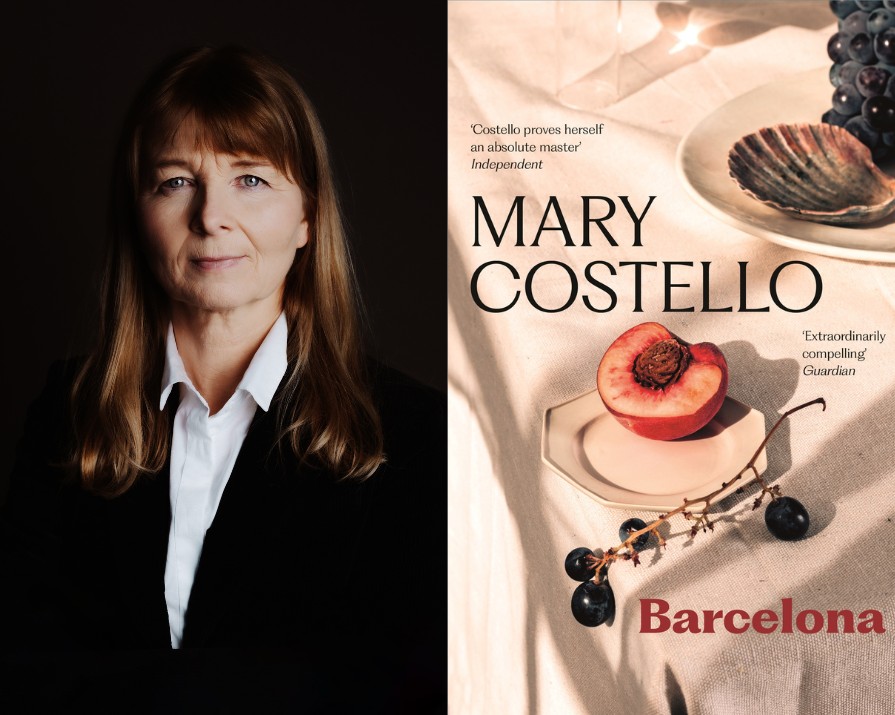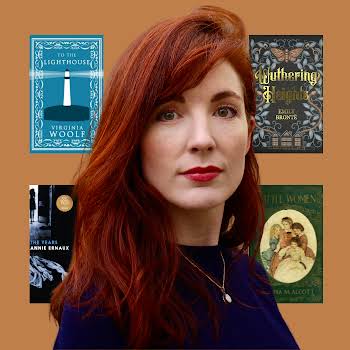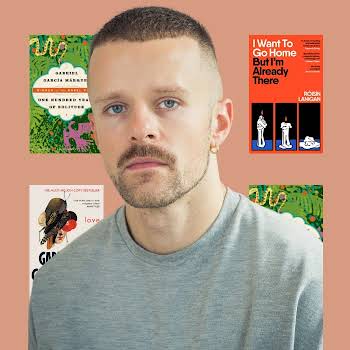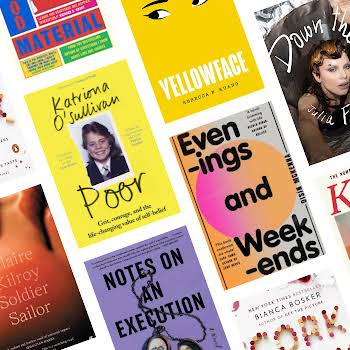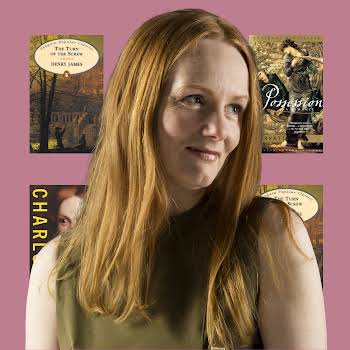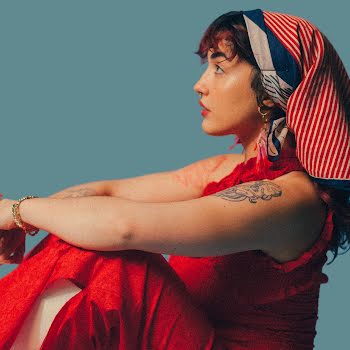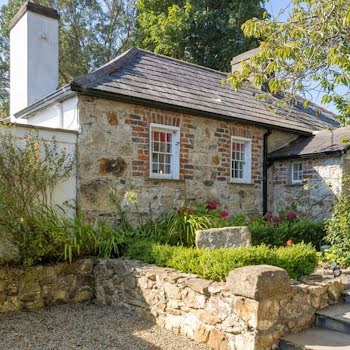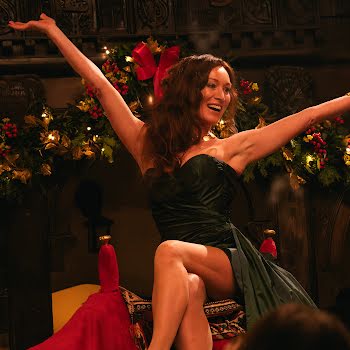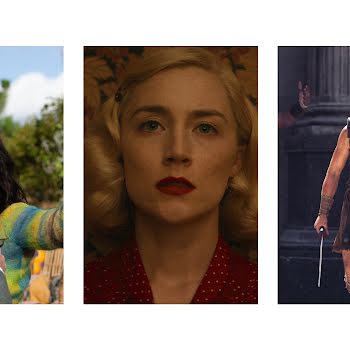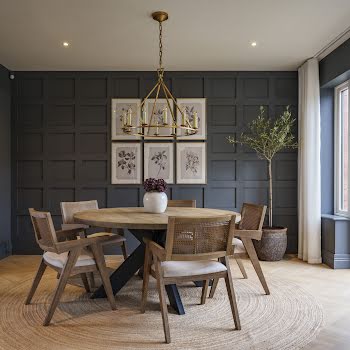Mary Costello on writing, literary inspiration, and the art of crafting short stories
By Sarah Gill
07th Mar 2024
07th Mar 2024
A woman known for her short story prowess, Mary Costello’s latest short story collection, ‘Barcelona’, is a thorough examination of the human condition.
Mary Costello is the award-winning author of two novels and two collections of short stories. Earlier this week, we featured an extract from Barcelona, which you can read here.
In Barcelona, we meet a cast of characters who live turbulent inner lives. In a Spanish hotel room a marriage unravels as a young wife is haunted by a past love. A father travels to Paris to meet his scientist son and is exposed to his son’s true nature. A woman attends a reading by a famous author and comes to some painful realisations about her own marriage.
The stories in Barcelona reveal the underlying disquiet of modern life and the sometimes brutal nature of humanity. Whether on city streets, long car journeys or in suburban rooms, we glimpse characters as they approach those moments of desperation – or revelation – that change or reshape fate.
Advertisement
Here, we sit down with the author to chat about her writing process, literary inspiration, and the art of crafting short stories…

Did you always want to be an author?
No, writing was not on my radar until I was about twenty-one. I’d studied English and always loved reading, but it was only during a period of insomnia when a kind of inner pressure started to build that I realised I needed to write.
What inspired you to start writing?
A vague feeling that something wasn’t right, or something was missing. I started writing to figure out what I thought.
Where did the idea for this book come from?
These stories were written over the last ten years. I also wrote two novels in that time. Stories usually start from an image, or a character I have in mind. For instance I had a librarian in my head for a while, but didn’t have a context or a life story for her. Then my mother-in-law happened to mention a friend of hers who, years ago, accompanied the remains of her aunt in the hearse from Dublin to her home place down the country. Instantly, I saw Frances in that hearse, with the undertaker, on that long journey.
Tell us about your writing process.
Once a story starts to germinate, I jot down notes. I don’t usually start writing until I have lots of notes and I know the approximate trajectory of the story. The story-line might change, of course, along the way. I rewrite and edit lots—that’s where the real writing happens. It can take 5-6 months to complete a story, and even then, I still want to tweak it.
Advertisement
What comes first, the plot or the characters?
Almost always, characters.
What did you learn when writing this book?
If I switch off the internet every morning and go to my desk, then slowly, day after day and month after month, stories accumulate.
Do you have any quirky habits when writing?
I don’t think so. Unless writing in a dark room with desk lamps on during daylight is quirky? Even in the height of summer, I have to have the window-blind down. That secluded, cave-like, sealed-off feeling is conducive to work.
The first book you remember reading is…
A collection of children’s stories, a present from my aunt. The story that I remember reading is The Little Red Hen.
Your favourite Irish author is…
No question: James Joyce.
The book you gift everyone is…
Right now, I’d give A Day in the Life of Abdel Salam by Nathan Thrall. This is a heart-breaking story of a Palestinian father whose five-year-old son, Milad, died after a bus carrying schoolchildren crashed and burst into flames on a highway near Jerusalem in 2012. There was an army checkpoint close by, but no ambulance or firefighters were sent, and the children were left to burn. The book chronicles the suffering of Salem and the injustices and oppression that Palestinians constantly endure under Israeli occupation.
Advertisement
Three books everyone should read:
The Hidden Life of Trees, by Peter Wohlleben – a wonderful account of how trees live in social networks, and how they communicate, share nutrients and support each other.
Gaza, by Norman Finkelstein, a rigorous history of this tragic land and its people, and how, for decades, the world has failed them and abandoned them, over and over.
Stepping Stones, Interviews with Seamus Heaney—a great poet and a decent human being whose integrity shines through.
You overcome writer’s block by…
Reading my favourite authors. Poetry, especially, help to shift energy—I never come away empty-handed.
Do you listen to music when you write?
No. But music often makes it way into my writing… characters are sometimes affected by a piece of music—the same music I love.
The best money you ever spent as a writer was on…
An Apple desktop, after years of crouching over my MacBook Air. The screen is huge, my posture has improved, and my neck pain has disappeared.
Advertisement
The three books you’d bring with you to a desert island are…
Ulysses, by James Joyce
Selected Stories, by Alice Munro (soon, hopefully, there’ll be a Collected Stories)
Lyrical and Critical Essays, by Albert Camus
A quote you love is…
Albert Camus: In the depths of winter, I finally learned that there lay in me an unconquerable summer.
The book you always return to is…
Elizabeth Costello, by JM Coetzee
Your favourite literary character of all time is…
Leopold Bloom, Joyce’s magnificent creation. A pacifist, a feminist, a true lover of humanity.
Advertisement
‘Barcelona’ by Mary Costello (€14.99) is on sale now.
Imagery via Yamila











